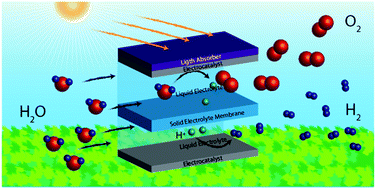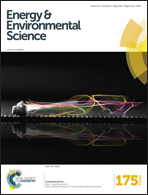Mass transport aspects of electrochemical solar-hydrogen generation
Abstract
The conception of practical solar-hydrogen generators requires the implementation of engineering design principles that allow photo-electrochemical material systems to operate efficiently, continuously and stably over their lifetime. At the heart of these engineering aspects lie the mass transport of reactants, intermediates and products throughout the device. This review comprehensively covers these aspects and ties together all of the processes required for the efficient production of pure streams of solar-hydrogen. In order to do so, the article describes the fundamental physical processes that occur at different locations of a generalized device topology and presents the state-of-the-art advances in materials and engineering approaches to mitigate mass-transport challenges. Processes that take place in the light absorber and electrocatalyst components are only briefly described, while the main focus is given to mass transport processes in the boundary-layer and bulk liquid or solid electrolytes. Lastly, a perspective on how engineering approaches can enable more efficient solar-fuel generators is presented.


 Please wait while we load your content...
Please wait while we load your content...